We were brainstorming on the most ideal ways to wrap up what seemed to be a very long-winded summer season. And we landed on something that surpassed the challenge.
Around 30 km from the Mumbai-Goa National Highway, there lies a space brimming with yellow (mango) hues interspersed with green (paddy). The 40-acre paradise is a lesson in agro-tourism as its owner Ganesh Ashok Ranade explains.
Ganesh had completed his commerce degree when a sudden love for farming eclipsed the job opportunities available to him in the corporate world. He decided to join his father on the farm. Today, the 2,000 mango trees that span for miles are a testament to the father-son duo’s efforts.
Summers at this Ratnagiri getaway promise to be exciting. When you aren’t roaming the farms with Ganesh trying to identify the juiciest produce of the season, you will be fed hearty lunches and dinners by his wife Varada, where (you guessed it) mango is the hero.
A firm believer that one must know what they are consuming, Ganesh treats his guests to a lesson in mango farming, tracing the sapling’s journey right from seed to fruit. What’s more is that you can even live in a mud room whilst at the farm, and experience an authentic farm lifestyle.
Sharing the journey of setting up this homestay that falls in the middle of Maharashtra’s Ratnagiri and Sindhudurg districts, 42-year-old Ganesh says, it is a culmination of a sustainable dream. He credits his father with sowing the seeds.
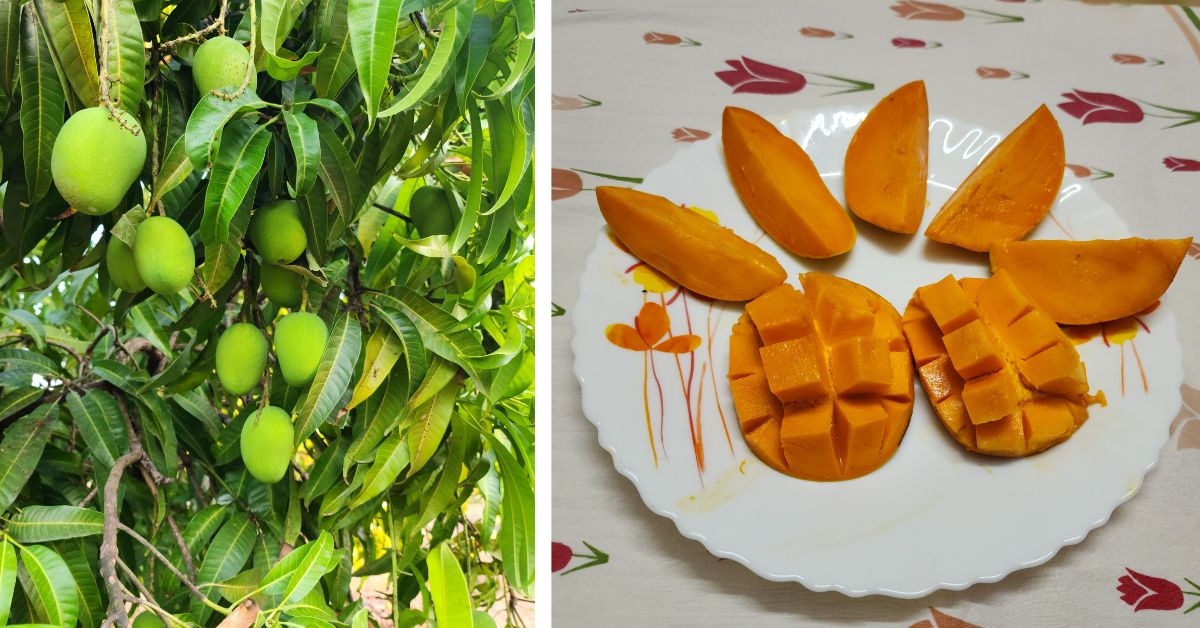
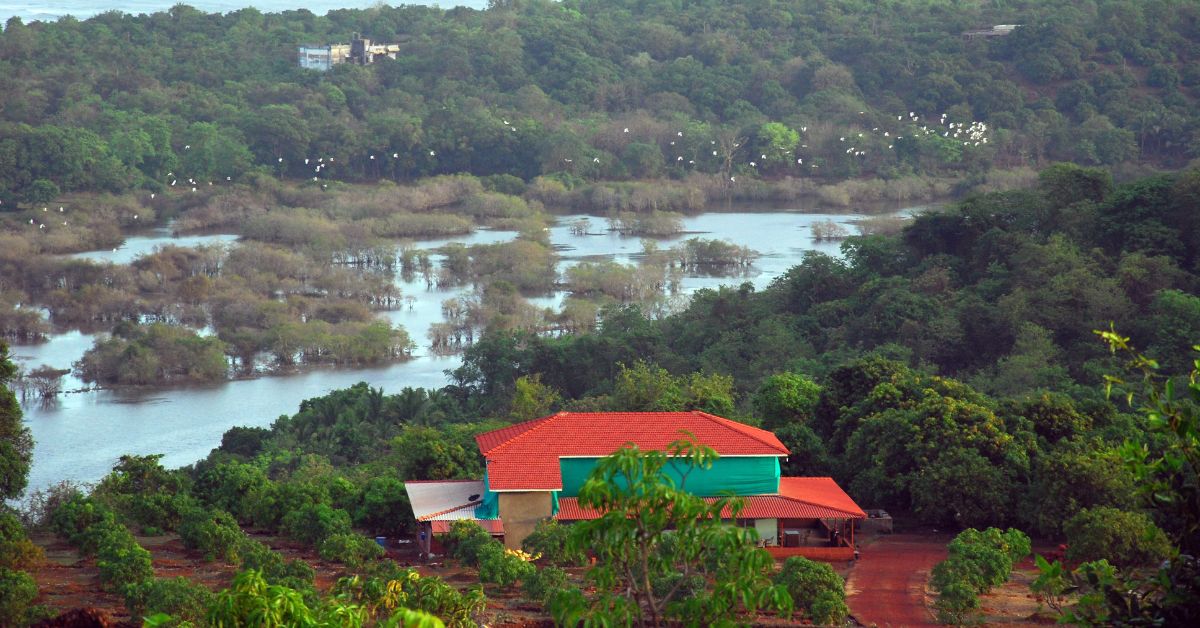
A tryst with organic farming
Organic farming is not easy — this is what Ganesh realised when he began to delve deeper into the subject around 2002. But even so, as he weighed the long-term fruits (pun intended) of organic techniques with the allures of chemical farming, he knew the former held more promise.
“In 1978 my father had planted 1,000 mango saplings on the land. He did this at a time when Ratnagiri was experiencing a harsh climate, less rainfall, undeveloped roads and power cuts,” he shares.
He recalls watching his father climbing to heights sometimes, to water the trees when the rain gods weren’t being kind. “But he persisted,” says Ganesh, adding that the 1,000 trees flourished. “When I joined my father in farming, I decided to plant another 1,000 mango saplings, and today, we have over 2,000 mango trees.”
Naturally, the farm always had an audience. People were intrigued at how the father-son duo had created a yellow oasis, and the organic methods they had used to achieve the feat. “We had many guests who wanted to observe how we were preparing our organic fertilisers from cow dung (we had 35 cows in our shed), how we used neem to make our pesticides, and how our mangoes were thriving,” Ganesh points out.

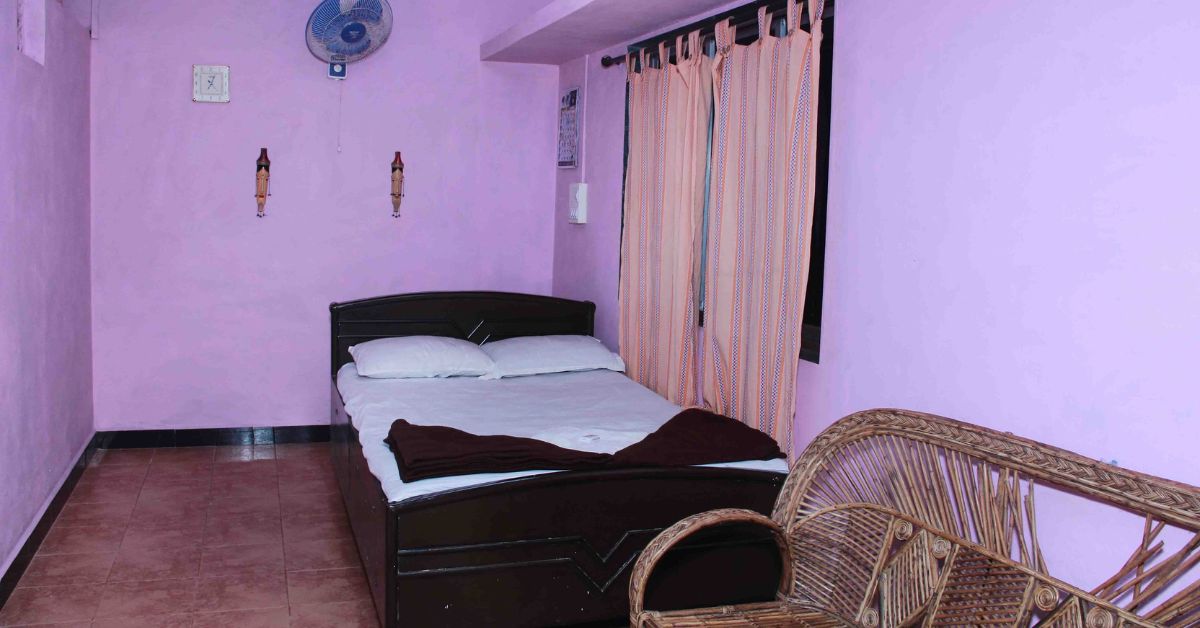
With the farm getting so much attention, Ganesh began thinking along the lines of creating a model which would combine tourism with agriculture but he couldn’t quite put his finger on what this would be; until in 2008, an experience changed him.
You may have heard of food scientist-turned-farmer Chandrasekhar Bhadsavle — famous for introducing the Saguna Rice Technique (SRT) among a handful of farmers in Neral (Karjat) in 2013 and for championing India’s first agro-tourism initiative ‘Saguna Baug’, which is located 75 km from Mumbai.
Once degraded land, the Baug was transformed into a thriving land with food crops, bamboo, livestock and fish; a space that promoted the surrounding wild biodiversity.
One day while on a drive, Ganesh came across Saguna Baug and having heard so much about the place, decided to stop by. They say some things can change your life’s trajectory completely. For Ganesh, a guided tour through the green space with Bhadsavle’s running commentary on how freeing nature could really be was one such experience.
“That was all I needed to confirm my faith in an idea that I had had,” says Ganesh, adding that his vision finally got a name. He decided to build an agro-tourism model.
Where mangoes play host
The minute you step into Ganesh Agro Tourism homestay, you’ll be able to tell the stark difference between the city air from the fresh gusts here. Mango trees move almost melodically, the branches causing a rustle that makes you stop and want to interpret. Watching these beauties and feasting on their fruits constitutes a great time.
Ganesh lets us in on the inception behind this homestay idea: “It was once my father’s packing unit. When we started getting so many guests visiting us to watch our organic farming practices, we thought it would be nice to create a place where they could stay. And so we decided to modify the packing unit into a homestay.”
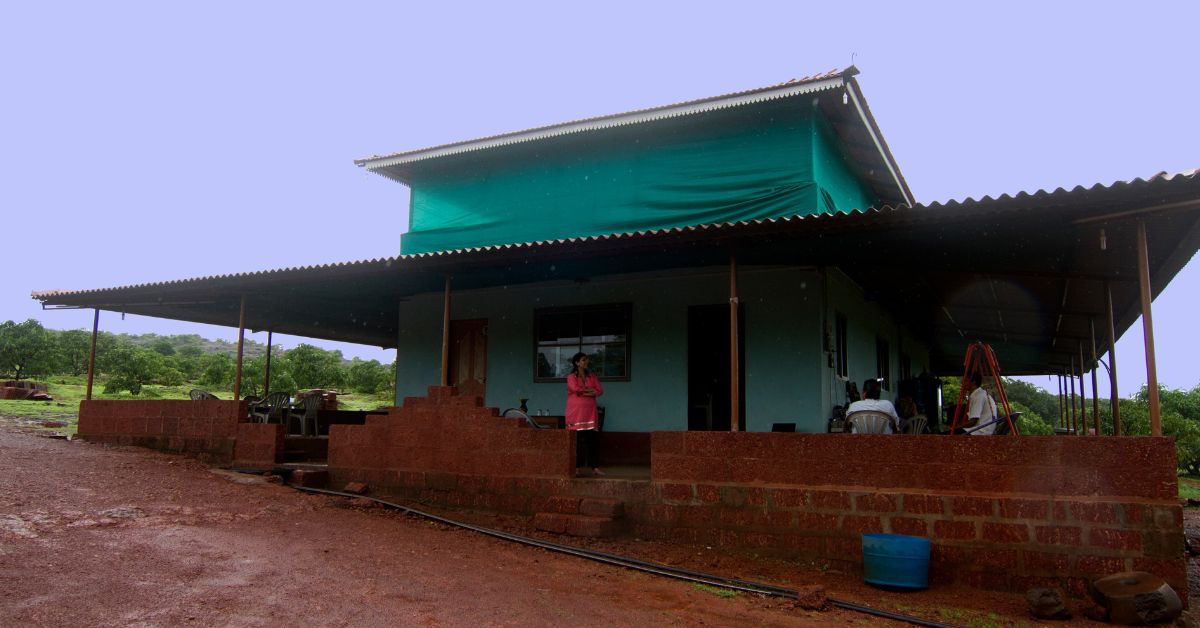
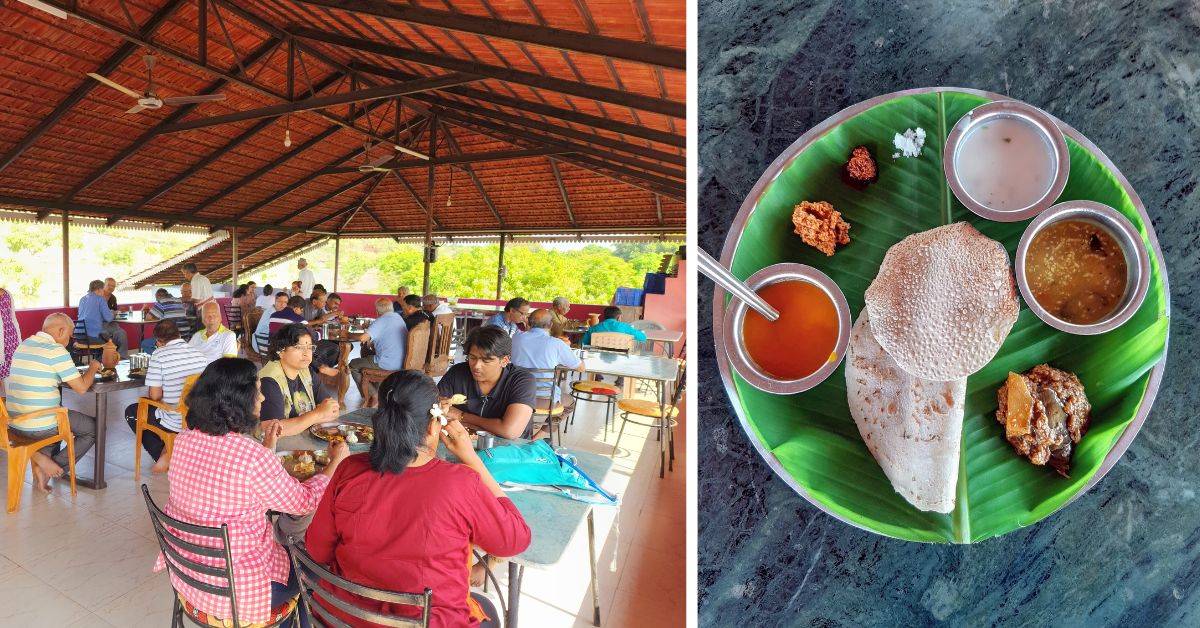
Currently, the homestay boasts five rooms, with one of them being an authentic mud room. While guests are on the farm, there is plenty to keep them busy, Ganesh says. “When people come in summer, we teach them how to identify ripe mangoes, climb trees, pluck mangoes and then ripen them, and prepare chutneys and juice.”
He adds that in the monsoons, guests are treated to lessons in paddy cultivation. “I take them on tractor rides, let them drive the tractors, and show them our organic harvesting methods.” When farming isn’t keeping guests occupied, Ganesh takes them boating and bird watching, and also lets them in on some mango canning secrets.
Needless to say, mango features in almost every dish at the homestay, sometimes as a side dish, other times as the hero ingredient. Aamti (a spicy, sweet and sour dal), pickles, panna (a cooling Indian summer drink made with unripe green mangoes), chutneys, aamras (a milky drink made with mango pulp), and fresh fruit are some of the delights offered.
As for Ganesh, he maintains that diving into agro-tourism was the best decision. “Agrotourism is beneficial because you get direct customers for your products. These are connections that you make for life.”
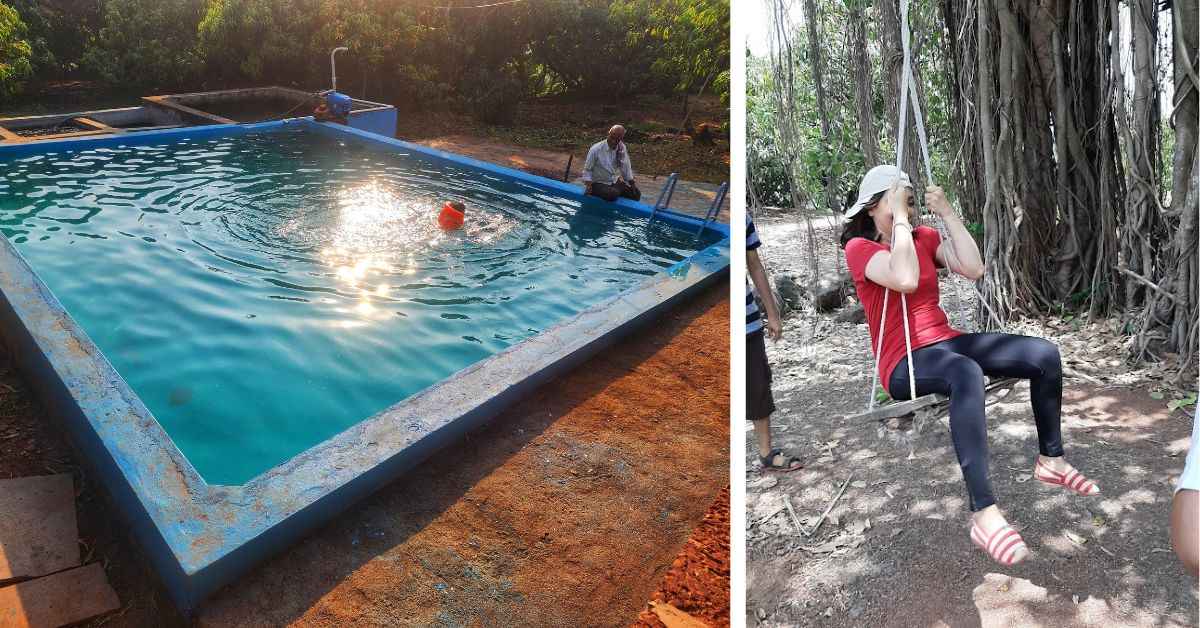
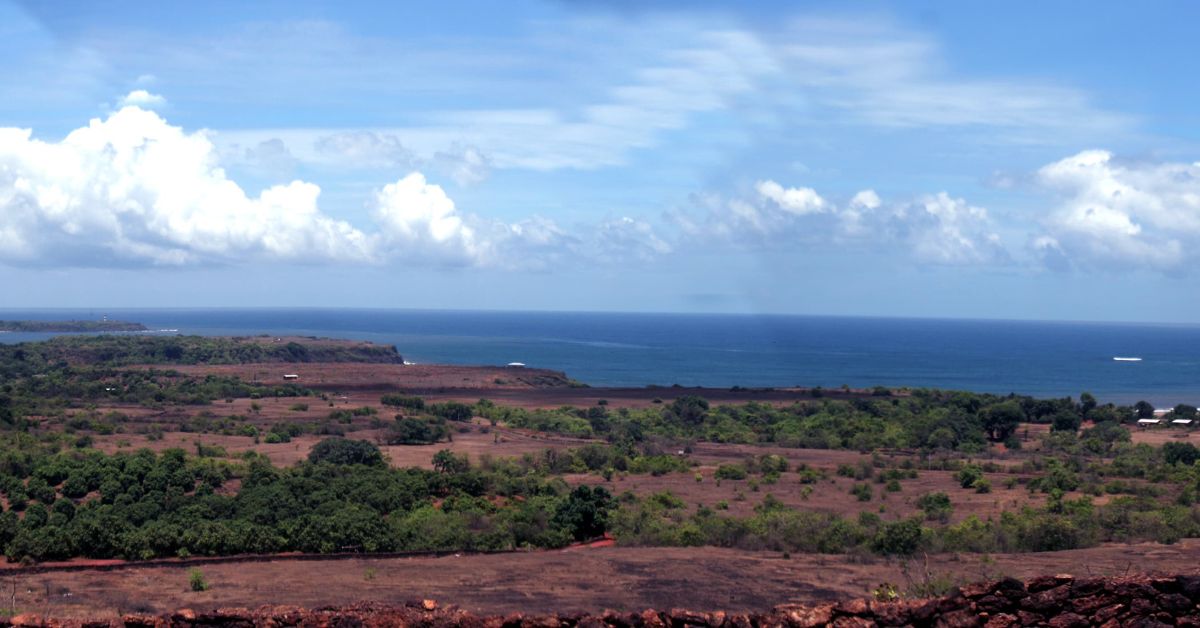
Currently, Ganesh’s mangoes make their way to markets in Mumbai, Thane, Kolhapur, Sangli, Nashik, and Pune.
He adds that while they did try their hands out at other vegetables, growing mangoes seemed the most lucrative option. “Aside from the demand for mangoes, there are other factors that make them suitable for us to grow. When we tried growing vegetables, cows would eat them, and we did not have money to hire people who would keep a watch on the fields.”
Thus the family decided to channel their energies into mangoes. And it is a bonus that Ratnagiri’s prowess for the Alphonso mangoes is GI-tag proof.
The reason for Ratnagiri being hailed as the best for Alphonso mangoes, Ganesh says, is the quality of the laterite soil here. “Add to this the favourable climate!” He emphasises that the mangoes he sells are genuine and have a unique identity. The Alphonso mango has long since worn the crown for being one of the sweetest, most aromatic varieties, named after Portuguese general and military specialist Afonso de Albuquerque, who assisted in establishing Portuguese colonies in India.
With notes of citrus and honey, the Ratnagiri Alphonso prides itself on a delicious pulp that is hugged by thin, firm skin with a longer shelf-life than their counterparts. And Ganesh is thrilled to be cultivating this work of art.
For anyone who wonders what Ganesh busies himself with the rest of the year — aside from summers — he cautions, “The mango season lasts for two months. But the other 10 months go into the maintenance of the land, cleaning the gardens, spraying the trees, putting fertiliser, and watching the fruits start to flourish.”
The summer season is when the family reaps the rewards of this hard work. Sharing how a love for nature has always coloured his choices, Ganesh says, “I ventured into farming just out of passion. And it was the best decision.”
Edited by Pranita Bhat
No comments:
Post a Comment